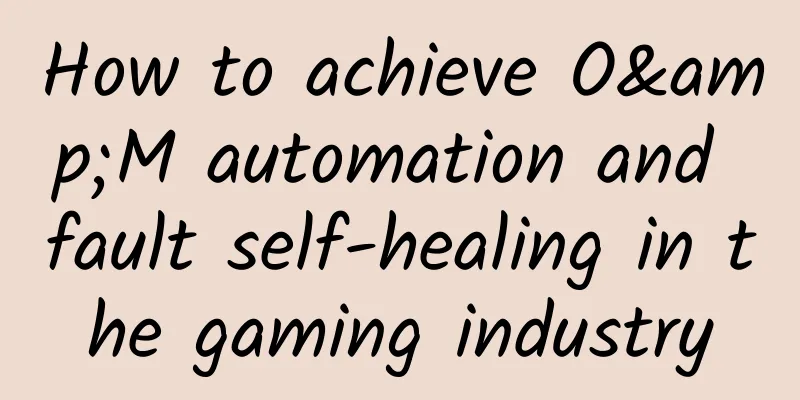Sorry for the offense, but "lip smacking" is really frustrating! Why is this?

|
Leviathan Press: It's really strange, I'm very sensitive to the chewing sound (strictly speaking, not the sound of chewing food, but the sound of smacking lips) made by others (to be precise, the closest people) when they eat. At this time, it's difficult for my brain to distinguish whether the physiological aversion caused by this sensitivity is the product of acquired cultural construction or some other factor. Moreover, at least so far, there is only this kind of sound that makes me feel uncomfortable (I don't feel the sound of scratching on the blackboard, chewing apples, etc.). “I Tried to Make Myself Deaf” — that was the title of an anonymous Reddit post from January, in which the poster described her own condition, misophonia, which causes sufferers to have strong emotional reactions to everyday sounds, such as others chewing, drinking or blowing their noses. © FoodBeast “I am particularly sensitive to clicking noises (pen clicking, fingernails clicking, etc.), and am also preoccupied with oral sounds, especially lip smacking and loud chewing,” she wrote. At age 6 or 7, she was so disturbed by the sounds of her mother eating that she tried to stick her father’s screwdriver into her ears “deep enough to make herself deaf.” Fortunately, she was unsuccessful. “I know, it’s horrible,” she wrote, “but I was already too old to handle it.” Scientists are only beginning to understand what causes people to have such extreme reactions to harmless sounds. Although it is estimated[1] that phonophobia may affect up to 18% of the population and a Reddit thread on phonophobia has 80,000 users, the condition wasn’t officially named until 2001.[2] © Rick&Brenda Beerhorst “Historically, people thought of sound aversion as an auditory processing disorder because the core problem is with sound,” says Joel I. Berger, a neuroscientist at the University of Iowa who studies sound aversion. However, he and other researchers believe that the condition may be more influenced by the social context in which the sound is presented. Berger recently co-authored a review of existing behavioral and neuroimaging studies. In the article, he proposed that sound aversion is actually a disorder of social cognition, which is the process by which people perceive, analyze, and understand the behavior, emotions, and intentions of others.[3] The most uncomfortable noises usually come from other people. The idea that humans’ responses to sounds are influenced by their source is not new. More than a decade ago, for example, researchers reported that when healthy study participants were told they were hearing a piece of music (but were actually hearing the sound of nails scraping against a chalkboard), they reported less aversion to unpleasant sounds and lower skin conductance responses (a measure of physiological arousal)[4]. For people with phonophobia, the most intolerable sounds are often those made by other people. In an as-yet-unpublished paper, Berger and his colleagues[5] found that people with phonophobia were more disgusted by the sounds of humans eating than by the sounds of animals eating. In addition, research has shown that the intensity of a person’s emotional response to a sound may depend on their relationship with the person making the sound. “Typically, the strongest reactions are often triggered by close family members,” Berger says. “All of these processes that are overactivated in phonophobia are closely related to how we make social connections.” Brain study reveals possible cause of sound aversion Neuroimaging studies have shown that the cause of this condition may be related to certain brain areas responsible for sound perception and understanding of social relationships. A 2019 study found [6] that in the brains of people with phonophobia, the areas of the auditory cortex that are triggered are related to motion perception, language comprehension, facial recognition, and speculation about the mental state of others. These areas include the superior temporal gyrus and the superior temporal sulcus. In addition, other imaging studies have shown that when people with phonophobia hear trigger sounds, the motor cortex of the brain is activated. Compared with the control group, their brains have tighter connections between the auditory cortex and the motor cortex. © Bana Balleh These findings support Berger's hypothesis: people with sound aversion may have a stronger unconscious perception of other people's movements, and these external movements may occupy a larger proportion in their brains than their own movements. This mismatch may cause them to feel that they have lost control of their bodies, which can trigger strong painful emotions. This may explain an interesting phenomenon: many people with sound aversion will unconsciously imitate the movements corresponding to the sounds that disgust them, such as chewing or sniffing with others. Berger believes that this imitation may help them regain control of the cognitive representation of these movements in the brain, thereby bringing some relief. Redefining sound aversion may lead to more effective treatments “This review is primarily theoretical,” says Giulia Poerio, a psychologist who studies sensory perception at the University of Sussex in the United Kingdom. “But the model they propose is an excellent starting point for further testing of specific hypotheses… As researchers, we need to think beyond just thinking of sound aversion as a disorder of pure auditory sensitivity.” Poerio thinks that if sound aversion is reframed as a disorder of social cognition, scientists might be able to develop new treatments. Current treatments—such as tinnitus retraining therapy, where patients are repeatedly exposed to trigger sounds to reduce their conditioned responses, as well as antidepressant and anti-anxiety medications—often fail to take into account the social context in which sounds occur. Cognitive behavioral therapy (CBT) has been shown to be effective for sound aversion.[7] This treatment typically focuses on modifying the negative thoughts that patients have when they hear the unpleasant sounds, but Berger suggests that future CBT interventions could try to get patients to reappraise the context in which they hear those sounds. People with sound aversion rarely experience discomfort from the sounds they make, a fact that is often used to cast doubt on the reality of the disorder. “It’s totally fine for me to eat an apple in my kitchen by myself,” explains Cris Edwards, director of the phonophobia advocacy group SoQuiet. “But if I’m in a room and I hear someone else eating an apple, I have to leave… that doesn’t make any sense.” As for the Reddit poster, she says her symptoms improved significantly after she moved away from her childhood home and away from the sounds and people who caused her symptoms. “Now that I’m out of that home, I feel much better,” she writes. By Zoe Cunniffe Translated by tamiya2 Proofreading/Rabbit's Light Footsteps Original text/nautil.us/when-other-peoples-chewing-causes-you-pain-1189542/ This article is based on the Creative Commons License (BY-NC) and is published by tamiya2 on Leviathan The article only reflects the author's views and does not necessarily represent the position of Leviathan |
>>: "Nezha 2" tops the list! What are the differences between IMAX, 2D, and 3D movie viewing?
Recommend
Share the tips on promoting products through Kuaishou live streaming!
How did a newbie who had just arrived complete mo...
The "ceiling" of human timekeeping: the error of this clock can reach only 1 second in 300 billion years
Produced by: Science Popularization China Author:...
Did higher education exist in the Warring States Period? Explore the origin of the Jixia Academy
...
2020 Zhou Dao Lecture Full Course Video "Reverse Profit 3.0" "36 Strategies to Make Money" "Fission Plan" "Seven Required Courses for Bosses"
The complete set of 2020 Zhou Dao lecture course ...
Can the mini program go online without a server?
As mini programs become more and more popular (du...
The Last Ship Season 1-5 HD English subtitles
Chinese name: The Last Ship Foreign name: The Las...
Google's official MVP sample code reading notes
Unraveling the project structure According to int...
Chimelong breeds the world's largest population of monkeys
On December 1, Chimelong Safari Park launched the...
Is product homogeneity serious? 4 dimensions to teach you how to break through successfully!
If you are a company that produces cosmetic conta...
Baidu President Zhang Yaqin: Artificial intelligence has entered a core stage of development
"A month ago, my wife and I drove from Seatt...
Practical Tips | Shopping Routes: A Concept That Operators Must Know
Over the years that I have been engaged in e-comm...
It turns out that it is Dialog that causes memory leaks in Android
1. Memory leak bugs surge Recently, I detected so...
Why do I still get lung cancer even though I don't smoke or drink? Pay attention, this type of lung cancer has already targeted women
Spot check! Name a group of people at high risk f...
Relying on yourself for everything is a sign of a person who has been hurt
From childhood to adulthood, I believe many peopl...
Jiangsu College Entrance Examination Results Release Date 2020 Jiangsu College Entrance Examination Score Query
At 4:40 p.m. on July 9, with the completion of th...









![[Chasing Dreams among Stars] Zhang Qianggong: Standing on the Roof of the World, Listening to the Voice of the Earth](/upload/images/67f2343f344e9.webp)